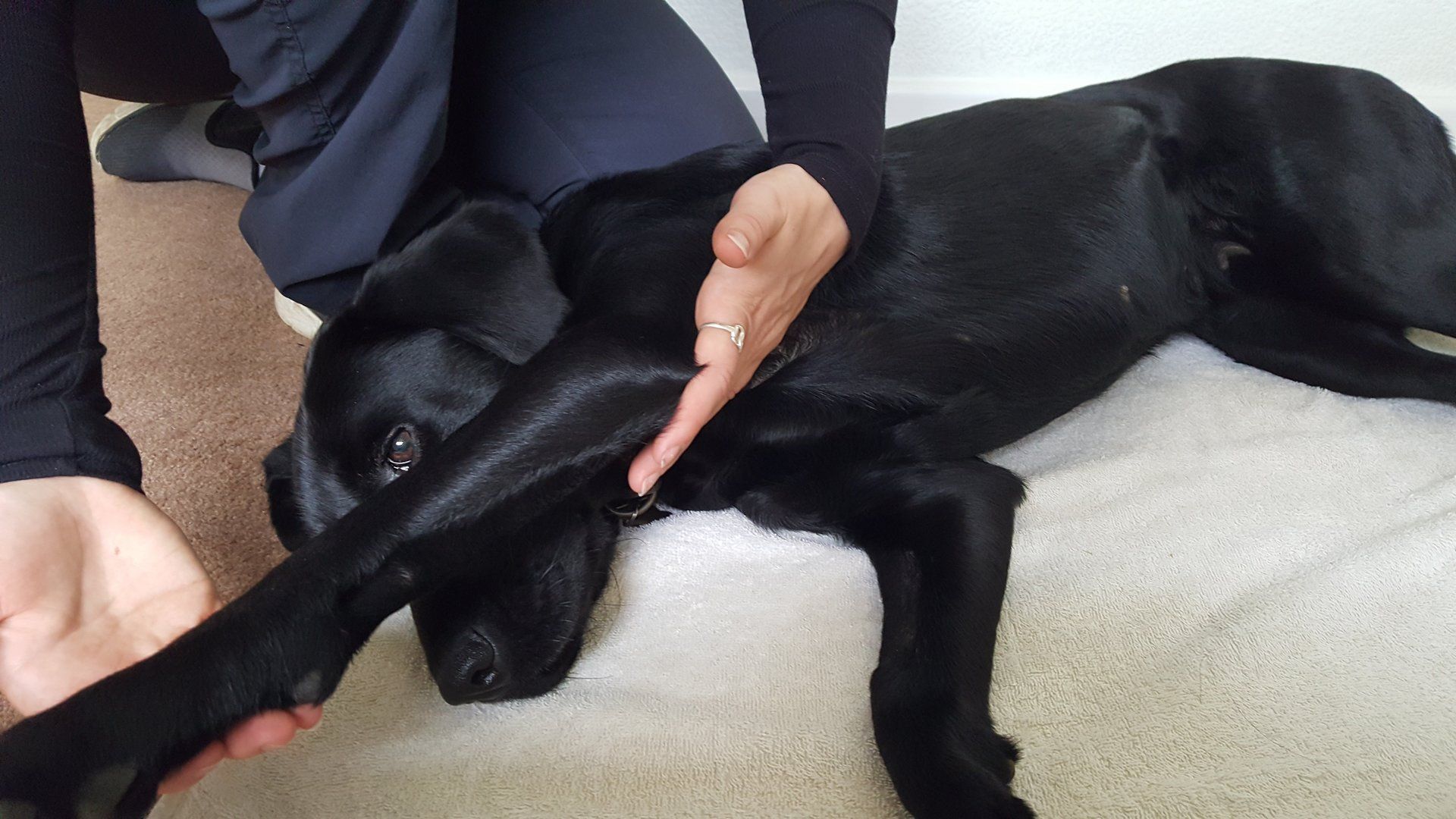Canine Physiotherapy
What is Veterinary Physiotherapy?
Veterinary Physiotherapy uses a variety of non invasive techniques to holistically assess and treat an animal. This helps to; prevent injury, reduce pain, improve mobility, restore muscloskeletal balance and increase strength. It can be beneficial for older animals, those recovering from injury or surgery as well as enhancing athletic performance.


Canine Physiotherapy
Veterinary physiotherapy for your canine companion is key for keeping them fit for function. Similar to getting an MOT, having your dog checked over by a therapist regularly can help to
identify any underlying injuries
and make sure they can continue to enjoy life with you. Whether that may be enabling them to go for walks or to be able to compete in
agility, flyball or canicross.
Additionally veterinary physiotherapy can support or aid in the
recovery following injury, surgery or disease. Some of the conditions treated
with veterinary physiotherapy include:
- Osteoarthritis
- Cruciate ligament rupture- conservative management
- Cruciate ligament rupture - post-surgery
- Hip Dysplasia
- Elbow Dysplasia
- Luxating patella - conservative management
- Luxating patella - surgical management
- Neurological conditions, e.g Fibrocartilaginous Embolism, Lumbo-Sacral stenosis, Degenerative Myelopathy
- Intervertebral disk disease (IVDD)
- Recovery following amputation
If you are unsure if veterinary physiotherapy would be suitable for your pet then feel free to contact us to discuss your animals' case.
Legal
Prior to an appointment, in accordance with The Veterinary Surgeons Act (1966) and the Veterinary Surgeon (Exemptions) Order 2015, we are legally required to contact your Veterinary Surgeon to gain consent for treatment. Therefore prior to an appointment we ask that you contact us, by phone or email, so we receive the required information and are able to contact your veterinary surgeon for consent.
What to expect
First appointments will last approximately 1.5 hours.
Repeat appointments will last approximately
1 hour.
Initially a detailed history will be taken, discussing many aspects of your animals social and medical history. Following this a static observation and gait assessment will be performed to assess how your animal moves and stands. A hands on assessment of your animals muscle tone and joint range of motion will follow to get a complete understanding of how their musculoskeletal system functions.
Any areas of musculoskeletal dysfunction will be treated using a variety of animal physiotherapy techniques and equipment, these include:
- Soft tissue massage
- Myofascial release
- Passive range of motion
- Active range of motion
- Stretches
- NMES
- TENS
- Pulsed Magnetic Field Therapy
- Therapeutic Ultrasound
- Red Light Phototherapy
A home exercise program will also be put in place to continue to supple, stretch and strengthen your animals musculoskeletal system. If required, further therapy sessions will be discussed and a treatment plan instigated.


